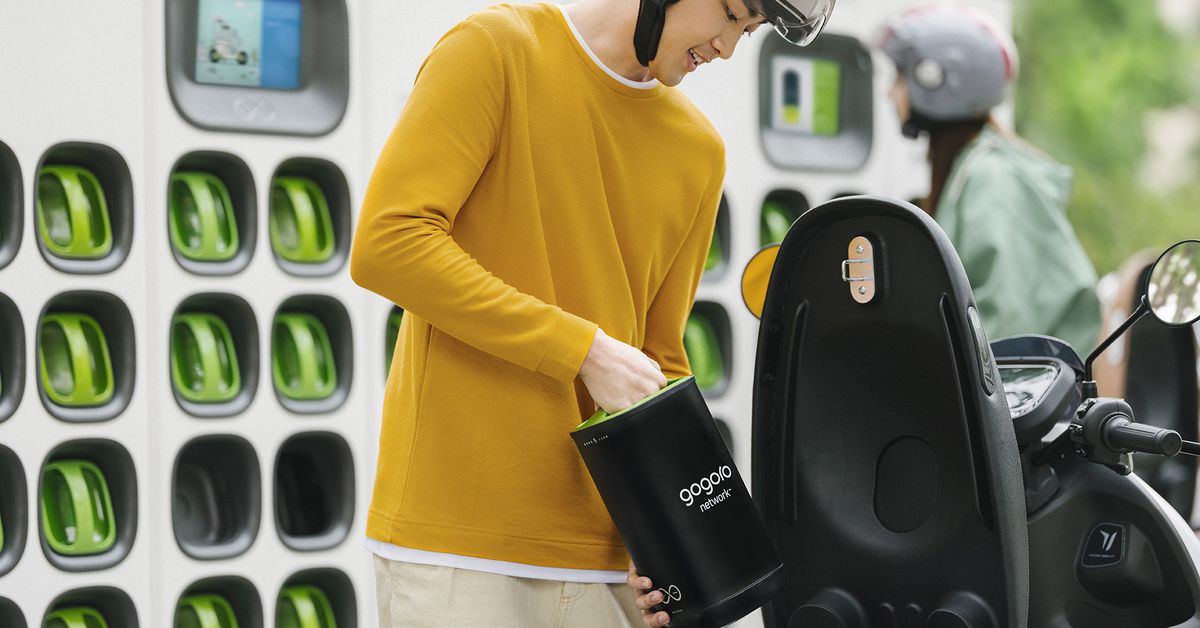Gogoro is joining the battery swapping revolution in China - 3 minutes read

Electric scooter company Gogoro continues to expand outside its home country of Taiwan in a big way, as it just announced new partnerships with a pair of China’s leading two-wheel manufacturers.
DCJ, the top gas-powered motorcycle company in China, and Yadea, one of the biggest makers of electric scooters, motorcycles, bikes and mopeds, have each agreed to develop new two-wheelers that will use Gogoro’s swappable batteries and electric drivetrains.
Gogoro CEO Horace Luke tells The Verge the deals with DCJ and Yadea have been in the works for around two years and that the Chinese companies dug deep into Gogoro’s technology before deciding to partner up. The three companies are announcing the deals just as the Chinese government has begun to embrace battery swapping in a big way, like adopting a national standard for the tech in larger passenger vehicles.
To that end, DCJ and Yadea will deploy networks of Gogoro’s vending machine-sized battery swapping stations, starting in Hangzhou, as they work on new vehicles built on the Taiwanese startup’s tech. Gogoro’s battery swap stations can also help a local electric grid meet moments of high demand.
“We are on the path to make Gogoro’s standard the de facto standard with the intention of making these cities cleaner, better, and safer for all of us in the future,” Luke says.
The announcement comes just a few weeks after Gogoro revealed that it’s entering the Indian market by way of a partnership with that country’s leading two-wheel manufacturer, Hero MotorCorp.
But while Gogoro will be working with Hero to essentially create the market for electric scooters in India, China presents the opposite opportunity. It’s the biggest market for electric two-wheelers in the world, but many of those scooters are using older battery technology that is a pain to charge and bad for the environment.
“China is completely the reverse, [where] a majority of the two-wheelers on the road today are electric. However, they’re shitty electric. The scooters are using lead-acid batteries that are clunky, [and] they don’t last very long,” Luke says. “When they use lithium battery, you [have to] carry the lithium ion battery back home to charge, it’s unsafe.”
Gogoro’s batteries, meanwhile, are compact but energy dense, and can be easily popped in and out of the battery swapping stations. Luke says they’re extremely durable, too, claiming that the very first ones that Gogoro released into the wild are still being swapped in Taiwan today.
Terms of the deals were not disclosed, but expanding into China is a massive step for Gogoro, which came out of stealth mode in 2015 at the Consumer Electronics Show. In the years since that debut, Gogoro has built out a massive network of scooters and battery-swapping stations across Taiwan, but Luke now refers to that as a “trial” ahead of these much larger partnerships.
Source: The Verge
Powered by NewsAPI.org